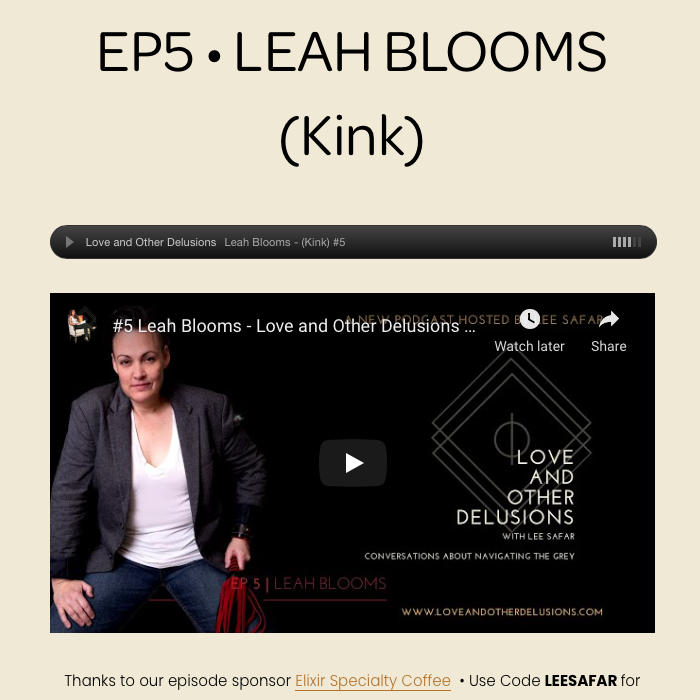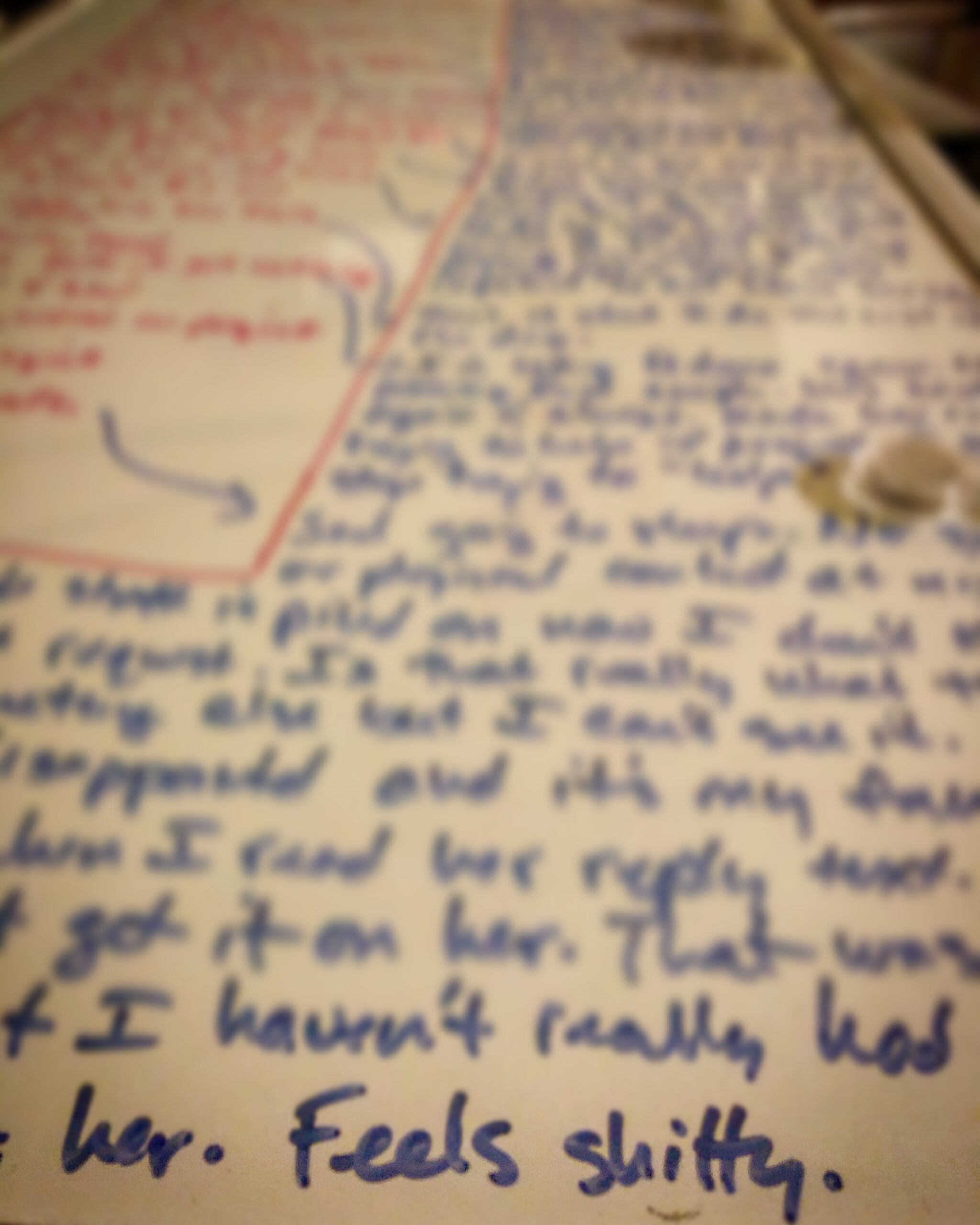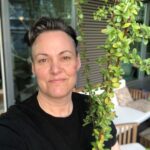and I’m already mad about it
Hello friends,
This morning I realized it was March 1 and felt surprised, like it had crept up on me somehow, and I’m for sure that that’s not right, given that I had a whole extra day this year to get ready for the end of February. (Leap Day Williams, anyone?)
My new daily habit for March is “move my body,” and as fate would have it, our friend from Atlanta is in town and wanted to meet for an early coffee at a place just around the corner. “Perfect,” I thought, “look how I’m getting a jump on my habit!”
There are two workshops in March: It Starts With You: Repair After Shattering, and Get Your Kinks Out: Planning Kink Scenes: A cheat sheet. I’d love to have you join me. (Sneak peek at what’s coming up later this year right here.)
My partner and I put on jackets, took the elevator downstairs, and I grabbed her hand as we headed out of the building towards the coffee shop. I was instantly confronted with an uphill climb. You might not know that this past year I’ve lost a little more ability in my left knee. I’ve acquired a “very cool, robust” walking stick that kind of looks like a ski pole. It’s meant for hiking, but I use it for city walking knee support up/down stairs and hills, except today, because I left it at home. And then the coffee shop wasn’t where I had imagined it was – it was further up the incline. So by the time we got there, I was out of breath and in pain, feeling grumbly about my ability to walk, and totally annoyed I’d forgotten my very cool, totally virile, not-cane.
So this is day one. I’m almost done being mad.
I know moving my body every day will increase my ability to move my body every day. Know what I mean? The inertia to get the ball rolling is hardest in the beginning, and I’m feeling every bit of that today.
Activation Energy is defined as “the minimum amount of energy needed to activate or energize molecules or atoms so that they can undergo a chemical reaction or transformation.” I’m trying to find my activation energy, probably to the least degree possible, to create the beginning of the change I’m hoping to see.
We’re wired to lean towards doing things that make us feel good (brain chemical reward), secure (security system activation), and comfortable (combination of both).
We’re wired to lean towards doing things that make us feel good (brain chemical reward), secure (security system activation), and comfortable (combination of both). That means, in order to make changes a reality, we have to be aware and override some really big and important survival systems in ways we don’t usually think about.
Homeostasis, the state your body is continually trying to reach and maintain, feels threatened when we introduce new ideas and habits. Homeostasis has many jobs, like maintaining body temperature, how fast or slow your metabolism is, and other survival functions. Doing new things is going to disrupt your micro-molecular neurophysiological thermostat, aka homeostasis. You’re going to get strong impulses to just sit down and return to “normal.”
Doing your new habit at the same time every day will help your brain start to expect the change and be more open to it, keeping the activation energy needed to incorporate a new habit to a minimum. Keeping the time down to 10 minutes or less will “trick” your brain into believing it’s possible and not too big of a disruption.
30 Days of Anything Rules:
Choose one new thing that fits in your life without (too much) disruption
Make a plan to do it, and try to do it at the same time every day for max ten minutes
Choose a reward for after you succeed
Know anyone who might want to join us? Thanks for sharing! Everyone is welcome.
—Previously posted on Substack






 Brandelyn (she/her) is a queer femme passionate about relationship-building, especially as it relates to understanding each of our own blind spots. She works in academic medicine ensuring that patient experiences are central in program and policy development. A certified trainer in Crucial Conversations®, part of Brandelyn’s work includes training staff and providers on navigating challenging situations that include intersections of fear and bias. She is a frequent presenter and has published work on the topics of including patient voices in research and rebuilding trust with patients following medical error.
Brandelyn (she/her) is a queer femme passionate about relationship-building, especially as it relates to understanding each of our own blind spots. She works in academic medicine ensuring that patient experiences are central in program and policy development. A certified trainer in Crucial Conversations®, part of Brandelyn’s work includes training staff and providers on navigating challenging situations that include intersections of fear and bias. She is a frequent presenter and has published work on the topics of including patient voices in research and rebuilding trust with patients following medical error. Leah (he/they/she) is a mentor, writer, and artist who is passionate about learning, sharing, and empowering others to live their best lives. Their mentoring focuses on intimacy, mental health, gender, sex, and practical self-care. He helps clients understand where these major components of life converge and how responses to them impact our ability to be successful. Leah uses a variety of healing modalities in their mentoring practice including reiki, practical self-care/self-discovery, kink, mind/body connection, craniosacral, emotional processing, and aromatherapy.
Leah (he/they/she) is a mentor, writer, and artist who is passionate about learning, sharing, and empowering others to live their best lives. Their mentoring focuses on intimacy, mental health, gender, sex, and practical self-care. He helps clients understand where these major components of life converge and how responses to them impact our ability to be successful. Leah uses a variety of healing modalities in their mentoring practice including reiki, practical self-care/self-discovery, kink, mind/body connection, craniosacral, emotional processing, and aromatherapy.

 Chrononormativity: The term ‘chrononormativity’ refers to the way in which our experiences follow patterns over time in conformity with normative frameworks, the use of time to organize individual human bodies toward maximum productivity. Found in,
Chrononormativity: The term ‘chrononormativity’ refers to the way in which our experiences follow patterns over time in conformity with normative frameworks, the use of time to organize individual human bodies toward maximum productivity. Found in, 
 Let’s talk about form and process for a minute, because so much of how I make sense of all of these ideas is by putting them into formulas, equations, algorithms, and theories. What are all of those terms and what do I mean when I use them?
Let’s talk about form and process for a minute, because so much of how I make sense of all of these ideas is by putting them into formulas, equations, algorithms, and theories. What are all of those terms and what do I mean when I use them? “What is a replicable algorithm?” An algorithm is simply a tool to understand how to solve a problem. A replicable one can be used over and over to keep solving problems so you don’t have to start at square one.
“What is a replicable algorithm?” An algorithm is simply a tool to understand how to solve a problem. A replicable one can be used over and over to keep solving problems so you don’t have to start at square one.
 I’m looking at different ways to feel connection and support. I had planned to travel and hold workshops around the country for 2019/2020. But then the whole world changed, didn’t it? It seemed like everything changed suddenly and without warning. It also feels like things haven’t changed fast enough.
I’m looking at different ways to feel connection and support. I had planned to travel and hold workshops around the country for 2019/2020. But then the whole world changed, didn’t it? It seemed like everything changed suddenly and without warning. It also feels like things haven’t changed fast enough.

 Daily Ritual Creation + Self-Tying as Self-Care
Daily Ritual Creation + Self-Tying as Self-Care